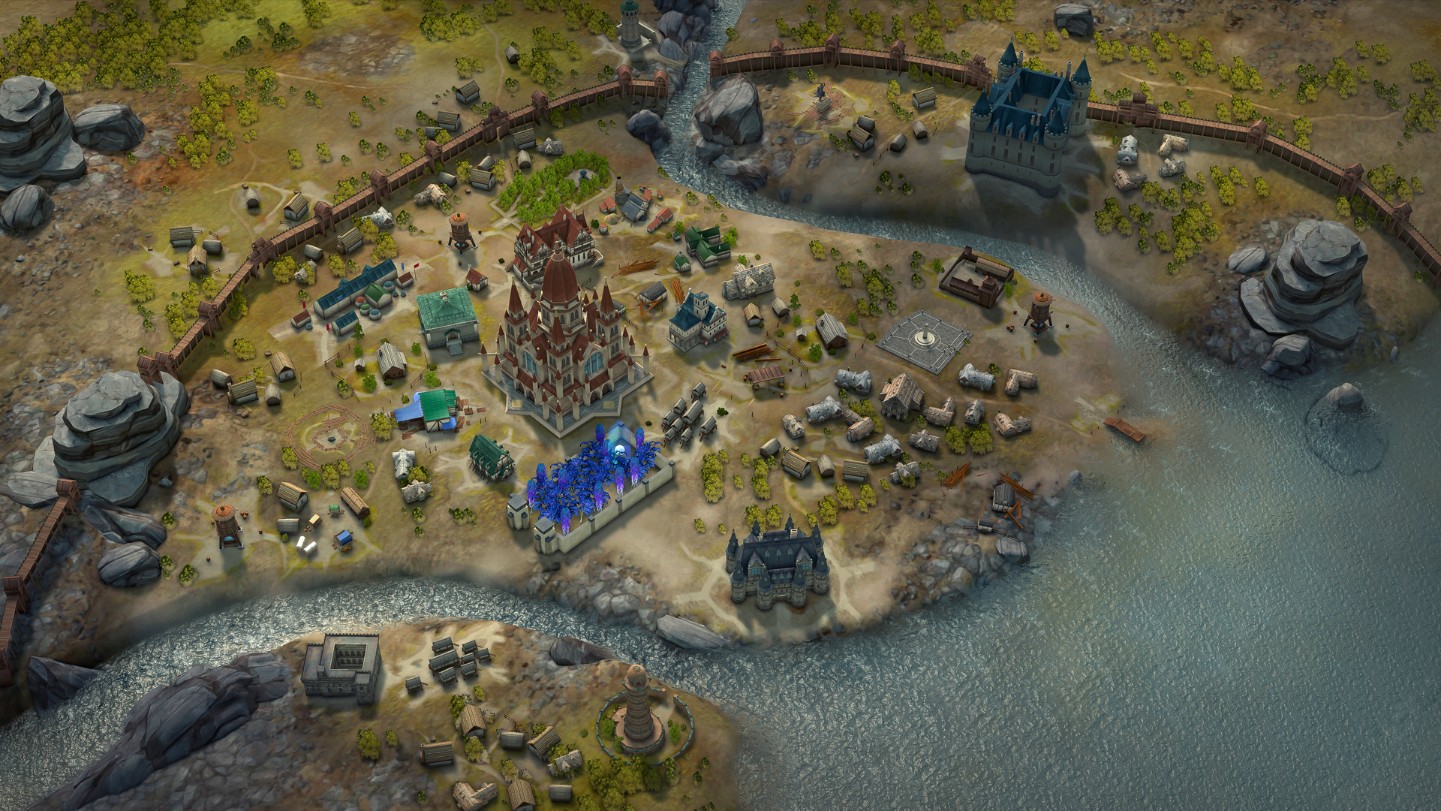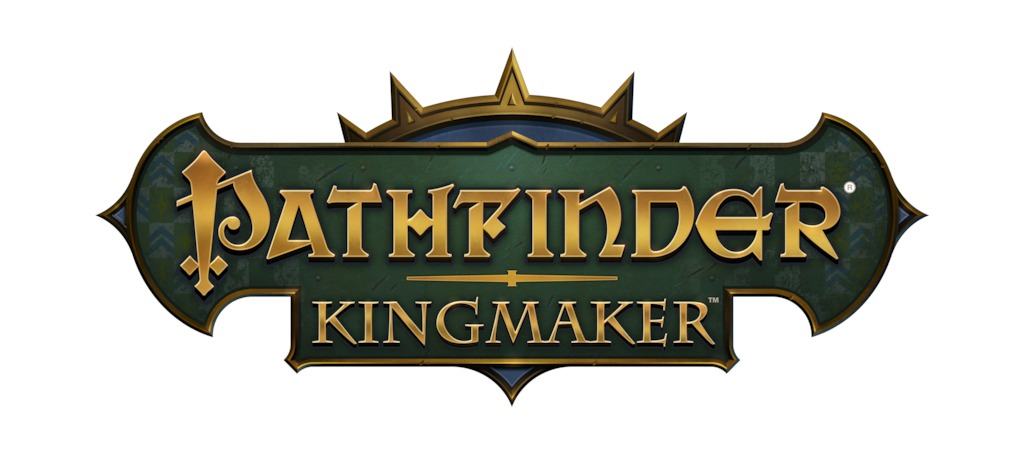Pathfinder (PF), a highly argued improvement over Dungeons and Dragons (D&D) 3.5 edition, praised by the community and ran by groups ever since it was conceived back in 2009 while others may have jumped to 4th and 5th editions of D&D. I myself am an avid role-player, starting my journey with D&D over 10 years ago, shifting to PF when I first found it around 5 years ago. As a fan of the pen and paper (PnP) version of PF, I was excited to hear that a video game version was making its way to the Steam store, while still reserved about how well it would translate. With the final release of this Kickstarter success, gaining $909,057 out of the required $500,000, Owlcat has brought us a lovely packaged adventure path to delve into. But did it deliver on a video game adaptation of a PnP game, or did it instead release a poorly written homebrew?

Pathfinder: Kingmaker follows along pretty close to the adventure path of the same name from the PnP version, so if you’ve played that you might be spoilt a bit on the story notes. The game starts off with our player-created character being hired, alongside a group of adventurers, to clear out the bandits from the Stolen Lands. As a reward for our deeds, we are offered the lands as our own, becoming a Baron or Baroness on our safe return.
Betrayal, split teams and travel later, we find ourselves amongst a slight conspiracy as the neighbouring country of Pitax sends a spy to thwart our efforts. Dealing with that distraction we soon have our own Barony, to which we can upgrade, protect and dictate through the rest of the game. From stopping plagues, invasions and monstrous uprisings, we will have to play through 6 whole chapters, or books, to keep both ourselves and our kingdom safe.
The main story of Kingmaker will last you well over 40 hours, reaching over 100 if you deign to complete all the side-quests, dungeons and completionism objectives. Thankfully, due to how PF is designed, it is very simple to add on more adventure paths and modules to this completed campaign, making DLCs and possible mods more straightforward than other games. If you have completed all you can in the main game you can also replay on higher difficulties or take other paths, from differences in alignments to companion choices.

Shifting from the design of PF, Kingmaker instead alters the base game into something more video game like, changing the turn-based PnP into a real-time RPG with the ability to pause at any point. This shift from turn-based to real-time can be very jarring for long-time players, as the in-depth planning process is now replaced with an almost action-based combat system with less time to plan out your moves. The basic concept of initiative, speed and turns are still in play but hold much less power within this real-time system.
For most of the game, you will be playing from an isometric view, controlling your characters in a similar fashion to an RTS, selecting them one by one or via a group selection. Clicking on the map will have them move, talk or interact with the world. Once you encounter some enemies on the map you can then engage them in some jolly combat, charging head first, stealthily getting closer or having your blaster wizard shoot off a pre-emptive fireball. Once that first action is undertaken, battle will begin with everyone rolling for initiative and running headfirst at one another. You can give your team orders individually or let their AI do the work for you.

If you have played either D&D or PF you will understand broadly how Kingmaker works. Everyone has their own race and starting statistics from Strength to Intelligence that dictate how well they work in melee, ranged or magical combat. Everyone also has a class which gives them abilities like sneak attacks, magical spells, infusing spells into weapons, healing the party or damaging undead and more. Finding a good balance and meld between your 6-character group is vital, you don’t want to be blasting your own team.
Sadly, against what PF normally does, Kingmaker moves a bit too far from the original design of the PnP version. Flanking is now active whenever a target is fighting 2 melee enemies, even allowing for ranged targets to benefit. There are no Coup De Graces, crafting, favoured classes, teleportation and several other mechanics are also missing. As a game designed to mirror the PnP so closely, it just decides to remove so many crucial elements of the PnP version. Teleportation is one of the most bizarre, due to the amount of travel needed, especially when enemies use teleportation way too often in the story mode. Even enemy clerics teleport.

Aside from normal combat and traversal, around 8 hours or so into the game you will gain control of your own kingdom. This kingdom will grow with your guidance as Baron, or put on an auto-managed course via a menu setting. You can build several establishments within the city, or neighbouring villages, upgrade buildings and improve the stats of your barony. With higher stats you unlock new advisor positions, where you place your companions, using them to complete kingdom events to be rewarded with even higher stats. With yet another mysterious choice or bug, the kingdom seemingly never changes its look as you upgrade, staying stagnant for a good majority of your playtime. Your kingdom also hardly ever aids you in the other part of the game, aside from some bonuses gained through research or the occasional piece of equipment from your artisans, though these are gained regardless of your stats.
Kingmaker uses a beautiful blend of orchestral sounds, drum beats and flutes within its soundtrack. Creating beautiful traversal tunes to action-packed tracks for major fights or events. There are times where the music becomes more subdued, being overtaken by sounds of ambience and city life, but there weren’t too many times where it disappeared completely. Amazingly the quality of the music stays high throughout, even shocking me when I went to other worlds with newer tracks hitting my ears.

Like many new games from new developers hitting the steam store, Kingmaker is plagued with bugs, glitches and things that shouldn’t generally happen. The game has several broken quests, 3 of which were patched in my time playing, stats either don’t update or stack too many times, dialogue breaks, the sound gets turned off, crashes to desktop and errors with auto-kingdom creating some game breaks later down the line. Thankfully Owlcat has been releasing 1-3 patches a week to address these issues, but with each patch comes new problems. Kingmaker feels like it needed a much longer testing phase or beta to weed out the constant issues.
As I stated at the start of this article, I love Pathfinder and tabletop gaming, but Kingmaker has disappointingly not delivered on too many fronts for my, and other gamers, liking. The removal and changes of mechanics, static shop inventories, bugs, glitches, random difficulties, lack of bestiary information all feed into this weirdly incomplete campaign set within the Pathfinder universe. While it does give us a very enjoyable experience, it delivers a half-hearted PF experience. It also takes out some of the group-play aspect when your main character must use their skills instead of the parties, leading to some unwinnable skill checks that would easily be passable if you could use your team.
 Overall, Pathfinder: Kingmaker gets an 8/10, it is a wonderful experience, full of tactical choices, political decisions, and splitting paths. However, the countless bugs, off-putting design choices and nit-picks all add up to dampen the otherwise amazing adventure. Mechanics are changed for somewhat random reasons, whereas others are deleted entirely. Balancing has taken a strange turn, with “normal” difficulty increasing enemy stats above normal PF versions. Hopefully, the dedication of the team continues on past the initial week of release as they continue to fix the game and improve on its countless flaws.
Overall, Pathfinder: Kingmaker gets an 8/10, it is a wonderful experience, full of tactical choices, political decisions, and splitting paths. However, the countless bugs, off-putting design choices and nit-picks all add up to dampen the otherwise amazing adventure. Mechanics are changed for somewhat random reasons, whereas others are deleted entirely. Balancing has taken a strange turn, with “normal” difficulty increasing enemy stats above normal PF versions. Hopefully, the dedication of the team continues on past the initial week of release as they continue to fix the game and improve on its countless flaws.
If you are a fan of Pathfinder, then Kingmaker may scratch your itch while you look for a PnP group to join. Though, due to the number of characters you need to control, reading text, character optimisation and player-input it may feel off-putting to players who don’t normally play D&D or PF.








You must be logged in to post a comment.